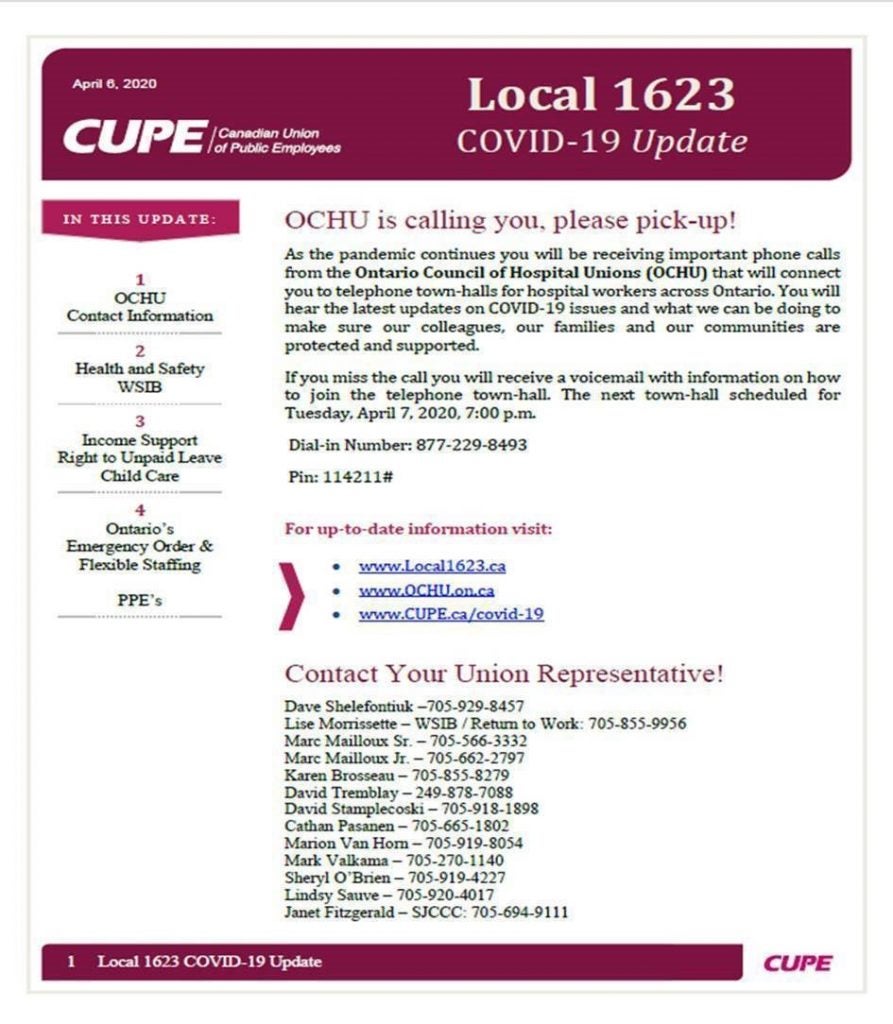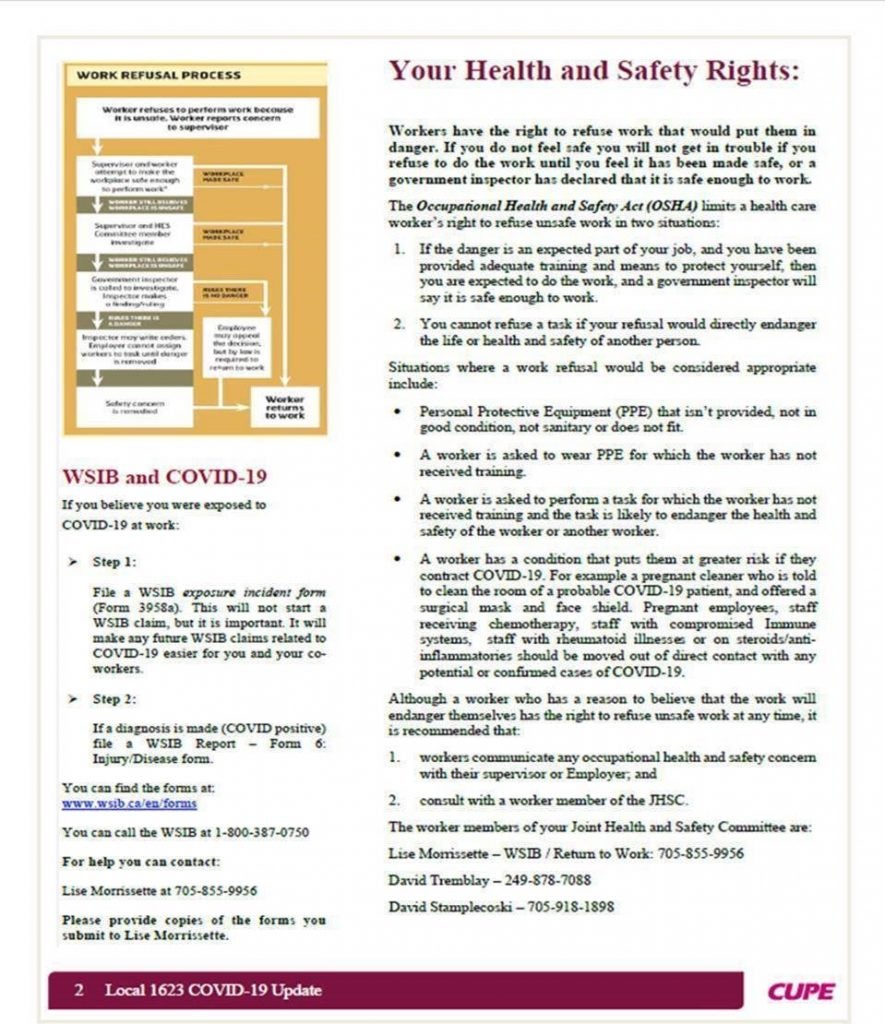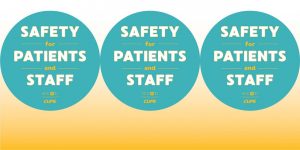Memo CUPE Local 1623
The Ontario legislature passed the Employment Standards Amendment Act (Infectious Disease Emergencies), 2020.
Summary of Legislation
The primary change creates job-protected leaves for individuals if a regulation has been created by the Cabinet setting out a “designated infectious disease” AND one of the following applies to the employee:
1. The employee is under medical investigation, supervision or treatment related to the “designated infectious disease”,
2. The employee is acting in accordance with an order made under section 22 or 35 of the Health Protection and Promotion Act relating to the “designated infectious disease”,
3. The employee is in quarantine or isolation, or is subject to a control measure (such as self-isolation) and the quarantine, isolation or control measure was implemented because of information or directions regarding the “designated infectious disease” issued to the public or to a specific person or group by a public health official, a qualified health practitioner, Telehealth Ontario, the government of Ontario, the government of Canada, a municipal council or a board of health,
4. The employee is under direction given by their employer in response to a concern the employee may expose others in the workplace to the “designated infectious disease”,
5. The employee is providing care or support to a person in a list set out below because of a matter relating to the “designated infectious disease” that concerns the individual from the list, including school and day care closures,
6. The employee is directly affected by travel restrictions related to the “designated infectious disease” and in the circumstances cannot reasonably be expected to travel back to Ontario, or
7. Any other reason that may be established by a regulation.
The people referred to in point (5) above are:
a. The employee’s spouse,
b. A parent, step-parent or foster parent of the employee or the employee’s spouse,
c. A child, step-child or foster child of the employee or the employee’s spouse,
d. A child who is under legal guardianship of the employee or the employee’s spouse,
e. A brother, step-brother, sister or step-sister of the employee,
f. A grandparent, step-grandparent, grandchild or step-grandchild of the employee or the employee’s spouse,
g. A brother-in-law, step-brother-in-law, sister-in-law or step-sister-in-law of the employee,
h. A son-in-law or daughter-in-law of the employee or the employee’s spouse,
i. An uncle or aunt of the employee or the employee’s spouse,
j. A nephew or niece of the employee or the employee’s spouse,
k. The spouse of the employee’s grandchild, uncle, aunt, nephew or niece,
l. A person who considers the employee to be like a family member, provided any conditions that might be set out in a regulation are met, and
m. Any individual that are deemed to be a family member in a regulation
The legislation also provides that employers may require “evidence reasonable in the circumstances” to take the leave, but cannot require a medical certificate.
The leave lasts as long as the employee is not performing job duties for one of the reasons set out above, and so long as there is a “designated infectious disease”.
Regulations that are made under this legislation can be made retroactive.
These changes can be found in section 50.1 of the Employment Standards Act.
It should be noted that these are job-protected, but unpaid, leaves of absence. If relevant paid leave is not available, employees should explore if income supports are available through, for example, the EI system.
If you have any questions or concerns, please contact a member of the working group.
Lise Morrissette – WSIB / Return to Work: 705-855-9956
Marc Mailloux Sr. – 705-566-3332
Marc Mailloux Jr. – 705-662-2797
Karen Brosseau – 705-855-8279
David Tremblay – 249-878-7088
David Stamplecoski – 705-918-1898
Cathan Pasanen – 705-665-1802
Marion Van Horn – 705-919-8054
Mark Valkama – 705-270-1140
Sheryl O’Brien – 705-919-4227
Lindsy Sauve – 705-920-4017
Dave Shelefontiuk –705-929-8457
Janet Fitzgerald – SJCCC: 705-694-9111






